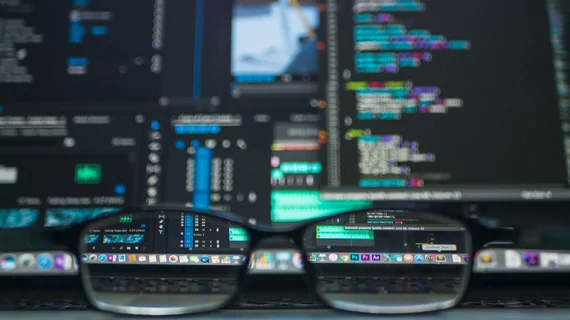3 ways AI is accelerating the fight against COVID
AI companies serving healthcare markets have been fast to tailor their work to the COVID-19 crisis. An opinion piece published May 28 by the World Economic Forum offers a sampling.
What the players in the piece share in common is their status as customers of Amazon Web Services. That’s not surprising, since the contributing writer is VP of machine learning at AWS.
Swami Sivasubramanian shines his selective yet sensible spotlight on COVID-busting AI activity in three spheres:
1. Enabling organizations to scale and adjust. Looking at healthcare providers and governmental bodies using AI-enable chatbots to screen for COVID and take questions from the public, the author cites a French startup, Clevy.io.
“Powered by real-time information from the French government and the World Health Organization, the chatbot is able to answer questions on everything from exercise to an evaluation of COVID-19 risks, without further straining the resources of healthcare and government institutions,” he writes. “French cities including Strasbourg, Orléans and Nanterre are using the chatbot to decentralize the distribution of accurate, verified information.”
2. Understanding how COVID-19 spreads. Here Sivasubramanian highlights the work of researchers at the Chan Zuckerberg Biohub in California who have built a model to estimate the number of undetected COVID-19 infections in 12 regions around the world.
Using machine learning and partnering with AWS, these innovators are analyzing how the virus mutates as it spreads through populations to infer how many transmissions have been missed, he explains.
3. Speeding up research and treatment. Among several initiatives the author describes under this category is UC-San Diego Health, which helps clinicians rapidly triage possible COVID patients before their diagnosis has been completed.
“Trained with 22,000 notations by human radiologists, the machine learning algorithm overlays x-rays with color-coded maps that indicate pneumonia probability,” he writes. “[T]hese methods have now been deployed to every chest x-ray and CT scan throughout UC San Diego Health in a clinical research study.”
“I have always believed in the potential of machine learning to help solve the biggest challenges in our world,” Sivasubramanian concludes, “and that promise is now coming to fruition as organizations respond to this [COVID-19] crisis.”
Click here to read the whole thing.

